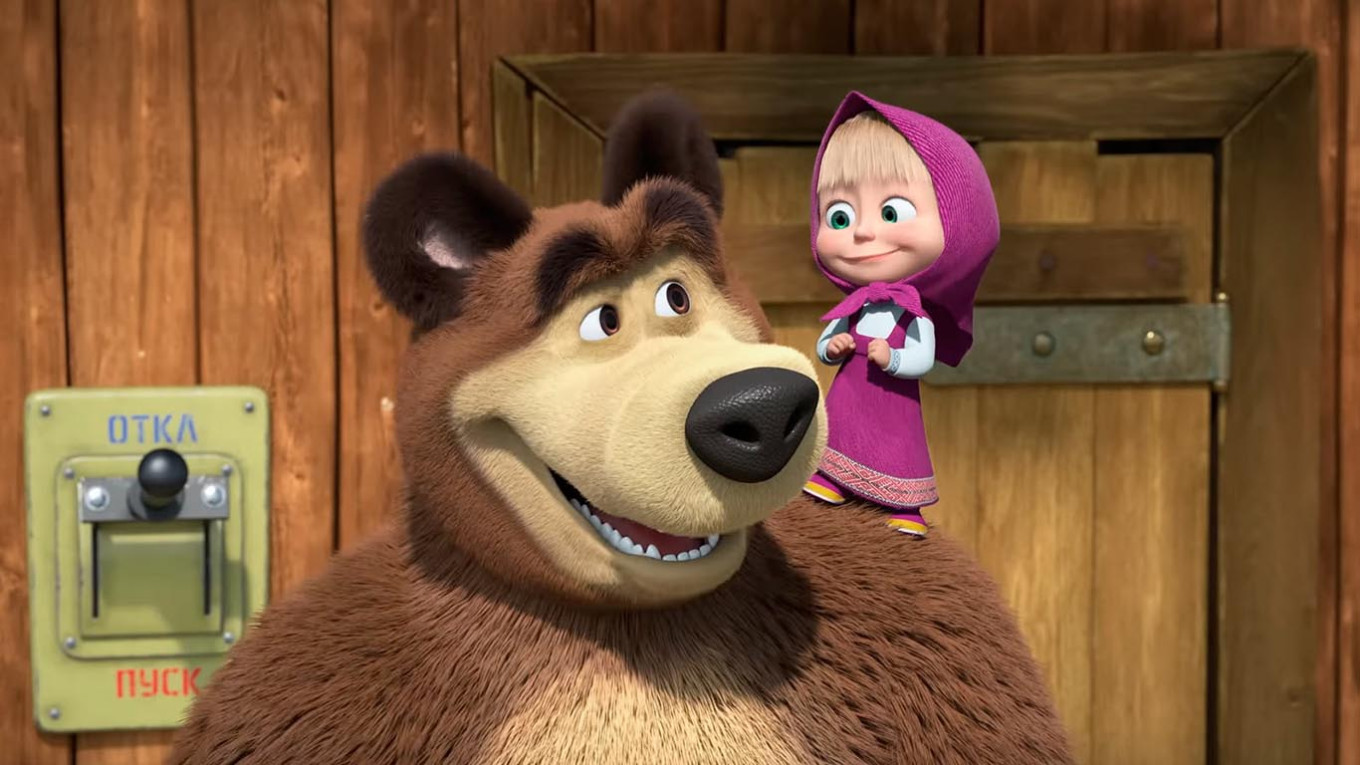A certain olitical scientist and activist named Vadim Popov has decided to make a name for himself by proposing that Russia restrict screenings of the beloved (indeed, globally beloved) cartoon “Masha and the Bear.” The activist claims that the show contains “a scattering of harmful meanings that contradict traditional Russian values.”
This is not the first time a self-appointed moralist has said such a thing. Back in 1928, another activist used almost identical phrasing when suggesting a ban on Korney Chukovsky’s children’s poems “Doctor Aybolit,” “Moydodyr” and “The Monster Cockroach.” That activist, however, was Nadezhda Konstantinovna Krupskaya — Lenin’s widow, who had clearly lost her wits by then.
“How can it be that a little girl lives alone?” Popov frets.
But that’s exactly the point: the unsupervised life of a child — an extraordinary situation — is what creates emotional tension and the foundation for drama, comedy and sometimes tragedy. A child shouldn’t live alone, which is precisely why it’s so fascinating to watch how Huckleberry Finn, Pippi Longstocking or Oliver Twist manage without their parents.
I don’t know if it’s possible to reassure the activist by reminding him that all the aforementioned characters — including Masha from “Masha and the Bear” — are fictional. For what it’s worth, all my children understood that perfectly well by the age of three.
Popov is also troubled by the fact that all the animals living with Masha in the house by the railroad tracks are afraid of the little girl.
But that’s what’s funny about it! Look what a rascal she is! Not only do the pig, goat and dog fear her — she can drive the wolves of the forest half mad with her pranks, and she can make the bear who loves her dearly lose his mind and wreck his own home.
That’s the nature of comedy itself: the inversion of the ordinary, the creation of absurd situations. Such things abound in folklore, which we’re told we should be passing on to our children.
That’s why it’s so amusing to see a little girl tormenting a big bear — because we all understand perfectly well how helpless little girls usually are and how ferocious bears tend to be.
I’d like to remind this delicate activist who’s so alarmed that Masha speaks daily with a bear that Nils in Selma Lagerlöf’s tales traveled with a goose. Mowgli in Kipling’s stories lived among wolves and conversed daily not only with a bear but also a panther and a python. For centuries, children who read those books or watched the films based on them somehow always had the sense to understand that fairytale characters are imaginary. They also knew that geese are for eating, not for flying to Lapland.
Human life seems to be arranged so that roughly once a century, otherwise reasonable societies fall into a kind of spectacular idiocy — banning fairytales, imprisoning poets and starting wars with their neighbors.
All these absurd actions are carried out with a deadly serious expression. The slightest trace of irony would make it impossible for people to believe that tiny Ukraine could have attacked enormous Russia, or that an 18-year-old girl singing songs on the street could threaten public order.
Therefore, I think the essence of the mission of these moral guardians lies precisely in forbidding themselves — and everyone around them — to laugh. Because the moment these guardians gain the ability to perceive the absurdity, they will instantly recognize their own ridiculous reflection in the mirror.
There is another story in which children constantly talk with all sorts of animals, some quite exotic: “Harry Potter.” In that story, during a Defense Against the Dark Arts class, the professor shows his students a boggart, a creature that takes the shape of whatever you fear most. Afraid of spiders? It becomes a spider. Afraid of gays? It becomes a gay man. Afraid of 18-year-old music-school students? The boggart turns into the singer Naoko.
In J. K. Rowling’s magical world, the way to neutralize a boggart is with the spell “riddikulus” — to make it funny.
A Message from The Moscow Times:
Dear readers,
We are facing unprecedented challenges. Russia's Prosecutor General's Office has designated The Moscow Times as an "undesirable" organization, criminalizing our work and putting our staff at risk of prosecution. This follows our earlier unjust labeling as a "foreign agent."
These actions are direct attempts to silence independent journalism in Russia. The authorities claim our work "discredits the decisions of the Russian leadership." We see things differently: we strive to provide accurate, unbiased reporting on Russia.
We, the journalists of The Moscow Times, refuse to be silenced. But to continue our work, we need your help.
Your support, no matter how small, makes a world of difference. If you can, please support us monthly starting from just $2. It's quick to set up, and every contribution makes a significant impact.
By supporting The Moscow Times, you're defending open, independent journalism in the face of repression. Thank you for standing with us.
Remind me later.






